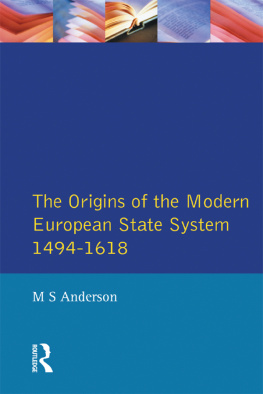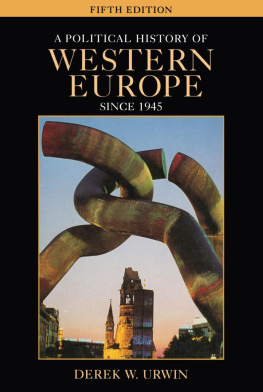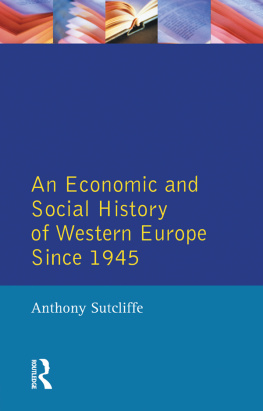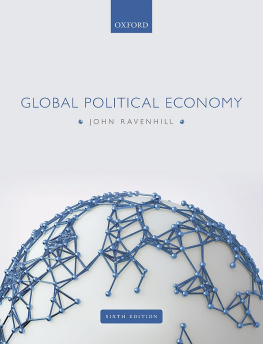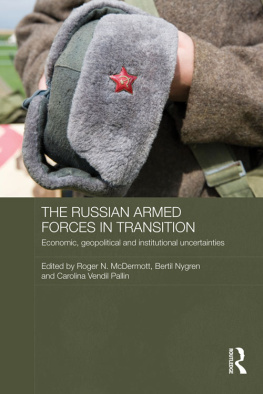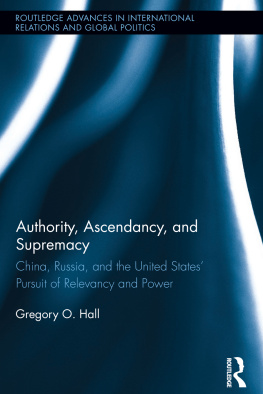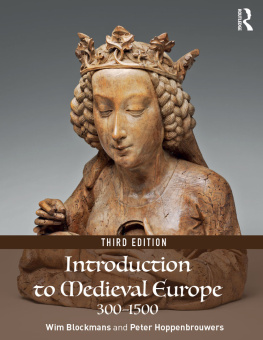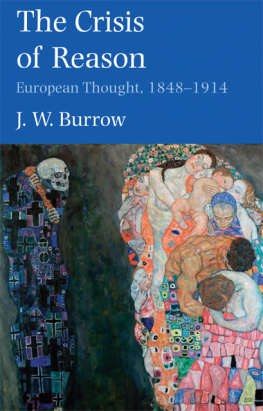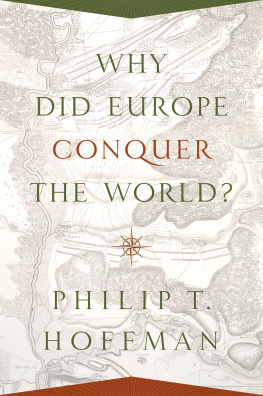The Ascendancy of Europe, 18151914
M S ANDERSON
The Ascendancy of Europe 18151914
THIRD EDITION
First published 1972 by Pearson Education Limited
Second edition 1985
Third edition published 2003
Published 2013 by Routledge
2 Park Square, Milton Park, Abingdon, Oxon OX14 4RN
711 Third Avenue, New York, NY 10017, USA
Routledge is an imprint of the Taylor & Francis Group, an informa business
Copyright 2003, Taylor & Francis.
The right of M S Anderson to be identified as Author of this Work has been asserted by him in accordance with the Copyright, Designs and Patents Act 1988.
All rights reserved. No part of this book may be reprinted or reproduced or utilised in any form or by any electronic, mechanical, or other means, now known or hereafter invented, including photocopying and recording, or in any information storage or retrieval system, without permission in writing from the publishers.
Notices
Knowledge and best practice in this field are constantly changing. As new research and experience broaden our understanding, changes in research methods, professional practices, or medical treatment may become necessary.
Practitioners and researchers must always rely on their own experience and knowledge in evaluating and using any information, methods, compounds, or experiments described herein. In using such information or methods they should be mindful of their own safety and the safety of others, including parties for whom they have a professional responsibility.
To the fullest extent of the law, neither the Publisher nor the authors, contributors, or editors, assume any liability for any injury and/or damage to persons or property as a matter of products liability, negligence or otherwise, or from any use or operation of any methods, products, instructions, or ideas contained in the material herein.
ISBN: 978-0-582-77259-5 (pbk)
British Library Cataloguing in Publication Data
A CIP catalogue record for this book can be obtained from the British Library
Library of Congress Cataloging in Publication Data
A CIP catalog record for this book can be obtained from the Library of Congress
Set in 10/13pt Sabon by Graphicraft Limited, Hong Kong
Contents
The twelve years which have elapsed since the first appearance of this book have seen the publication of a great deal of new work, much of it of high quality, on every major aspect of the life of nineteenth-century Europe. I cannot pretend that I have been able to give adequate attention to all this writing, or even to all that published in English; however a considerable amount of new information and ideas, and a number of new examples and illustrations of the arguments put forward, have been incorporated in the revised version. More important, an effort has been made to widen its scope and make its coverage of the subject more complete by adding a substantial chapter on economic and social history, an aspect of nineteenth-century Europe which, I have increasingly felt, was inadequately served in the first edition. I have also done some pruning of the footnotes, which it may be argued were at times somewhat self-indulgent, and have added a bibliography, though inevitably a brief and summary one. I hope these changes may make the book more useful to the students who are the most numerous and important readers of a work of this kind.
M. S. ANDERSON
It is very gratifying that three decades after the first publication of this book it should be thought worthy of a new edition, and I am grateful to the publishers for making this revised one possible. I have taken the opportunity to add a good deal of new illustrative material and also to improve or clarify the wording at a small number of points. The Bibliography as well has been considerably altered. I have tried to bring it up to date by including at least the more important work in English which has appeared since the second edition of the book was published in 1985, though the stream of relevant writing, much of it of high quality, is now so great that this in itself is no small undertaking. I have also confined it, more than in earlier editions though by no means entirely, to books and a small number of articles in English. This I have done with some reluctance; but I hope that these changes will not merely prevent it becoming too long and complex but also make it more useful to the students who are the largest and most important group of potential readers.
I have also made one or two changes of some substance as my view of the subject has developed over the years. In the last chapter I have added a brief discussion of the continuing importance in the intellectual and social life of nineteenth-century Europe of traditional forms of religious belief. This is a significant aspect of the period which I now feel sure was given less weight than it should have been in earlier editions. The conclusion I now think stressed rather one-sidedly the conservative and backward-looking aspects of European life. It has now, I hope, been given more balance by reminding the reader how powerful the forces of change had become by about 1880 and how reasonable it was by 1914 for many Europeans to look forward to a future of progress and steady improvement in their lives. Finally, the general effect of the additions to and small changes in the text has been to emphasize the importance of the new united Germany after 1871 and of Russia throughout this entire period. This has tilted the balance of the book to some extent towards them and away from France, the Habsburg empire and even Great Britain. The change has not been very marked; but again I feel it is justified. By 1914 both Germany and Russia, more than ever before, were dominant forces, or potentially so, in many aspects of European life. The tendency for a west European writer to give slightly too much prominence to the affairs of the western states, Great Britain and France, is no doubt natural. But it is right to make some effort to resist the temptation; and this I have tried to do.
M. S. ANDERSON
London, October 2002
The generation or more which separates the 1780s from the battle of Waterloo saw the beginnings of modern history in Europe. During the eighteenth century the continent was still, in its everyday life, closer to the twelfth century than to the twentieth. Economic change, though real and important, was by the standards of succeeding generations very slow. Though there was a remarkable growth of population, industrial organization remained for the most part highly traditional. Technology, largely unaffected by scientific discovery, advanced slowly and erratically. As late as 1776 Adam Smith could tacitly assume, in his Wealth of Nations, that the economies of the European states were static, or growing only very slowly. Society continued almost everywhere to be, as it had been for centuries, a complex network of groups often enjoying, by law or tradition, important corporate privileges village communities, guilds, towns, churches, universities. It was still, over much of the continent, divided into traditional orders church, nobility, burghers, peasantry whose members enjoyed different legal rights, bore different legal burdens and had different legal personalities.
The governments of continental Europe before the French Revolution, with a few rather unimportant exceptions, were, as they had been for generations, monarchies of a more or less absolute kind. It is true that absolutism was now being challenged and tempered by new forces. Enlightened despots, inspired largely by the example and success of Frederick II of Prussia, began to pride themselves on working for (though hardly ever with) their peoples, and as a rule accepted the idea that they and their subjects were bound together by some vague form of quasi-contractual relationship. Moreover the commercial, naval and colonial successes achieved by Britain had now made ideas of limited and parliamentary monarchy more acceptable than ever before, at least in parts of western Europe. The monarchical mystique was thus less pervasive and demanding than in the seventeenth century; the two or three generations before the French Revolution produced no Bossuet or Filmer. None the less no major continental state possessed in the 1780s an effective parliament; and republicanism was a remote classical tradition, a piece of political antiquarianism rather than a living idea. Even the armed forces of which rulers made use in the furtherance of their territorial disputes and dynastic claims were highly traditional. The sailing man-of-war armed with smooth-bore cannon using crude black gunpowder had not changed in essentials for well over two centuries: armies were relatively small and often dynastic rather than national in their outlook.


